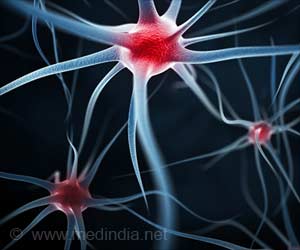A study done by University of North Carolina at Chapel Hill found that people given a biological and genetics-based explanation for the causes of anorexia.
A study done by University of North Carolina at Chapel Hill found that p eople given a biological and genetics-based explanation for the causes of anorexia nervosa were less likely to blame people with anorexia for their illness than those given a sociocultural explanation.
“This is a potentially important finding,” said first author Michele A. Crisafulli, “because it suggests that wider dissemination of information about the biological and genetic underpinnings of anorexia nervosa could help decrease the blame-based stigma that is associated with the disorder.”The study was published Jan. 9, 2008, in the online version of the International Journal of Eating Disorders. It will be published in the print version of the journal later.
Crisafulli conducted the experimental study as an undergraduate honors thesis project while she was a student at UNC. She is currently working toward a doctoral degree in clinical psychology at Boston University.
“There is a lot of false information about anorexia nervosa disseminated in pop culture. This study suggests that even a nugget of accurate biological information can influence how health care professionals perceive the illness,” said Dr. Cynthia M. Bulik, William and Jeanne Jordan Distinguished Professor of Eating Disorders and Psychiatry, director of UNC’s Eating Disorders Program and the study’s senior author.
“It opens up new horizons for accurate information campaigns to help the public understand that people with anorexia nervosa are not to blame for their illness and that biology plays a role,” Bulik said.
Anorexia nervosa is characterized by the relentless pursuit to be thin and obsessive fears of being fat. Self-starvation, extreme weight loss and related medical complications that accompany the disorder can result in death. More people die from anorexia than from any other mental illness.
Advertisement
In the UNC study, 115 undergraduate nursing students were first given a questionnaire that asked about the participants’ prior level of contact with people with anorexia nervosa. Then each was given a one-page information sheet. Roughly half received an information sheet that emphasized what is currently known about the biological and genetic contributions to the development of the disorder. The other half received an information sheet that emphasized sociocultural explanations for the causes of the illness.
Advertisement
The questionnaire also asked other questions intended to measure the participants’ attitudes toward people with anorexia, including whether or not they would sign a petition asking insurance companies to provide equal coverage for anorexia as they do for other medical conditions.
The results showed that individuals in the group given the sociocultural explanation were more likely to agree with the statement, “They are to blame for their condition.” They were also more likely to agree that parenting, vanity and lack of social support were causes of anorexia nervosa.
The study concluded that “people who were presented with even minimal information about the biological and genetic underpinnings of (anorexia nervosa) did tend to blame people with anorexia for their condition less than are those who were only informed of the sociocultural factors that may contribute to the disorder.”
Source-Eurekalert
JDP/M







